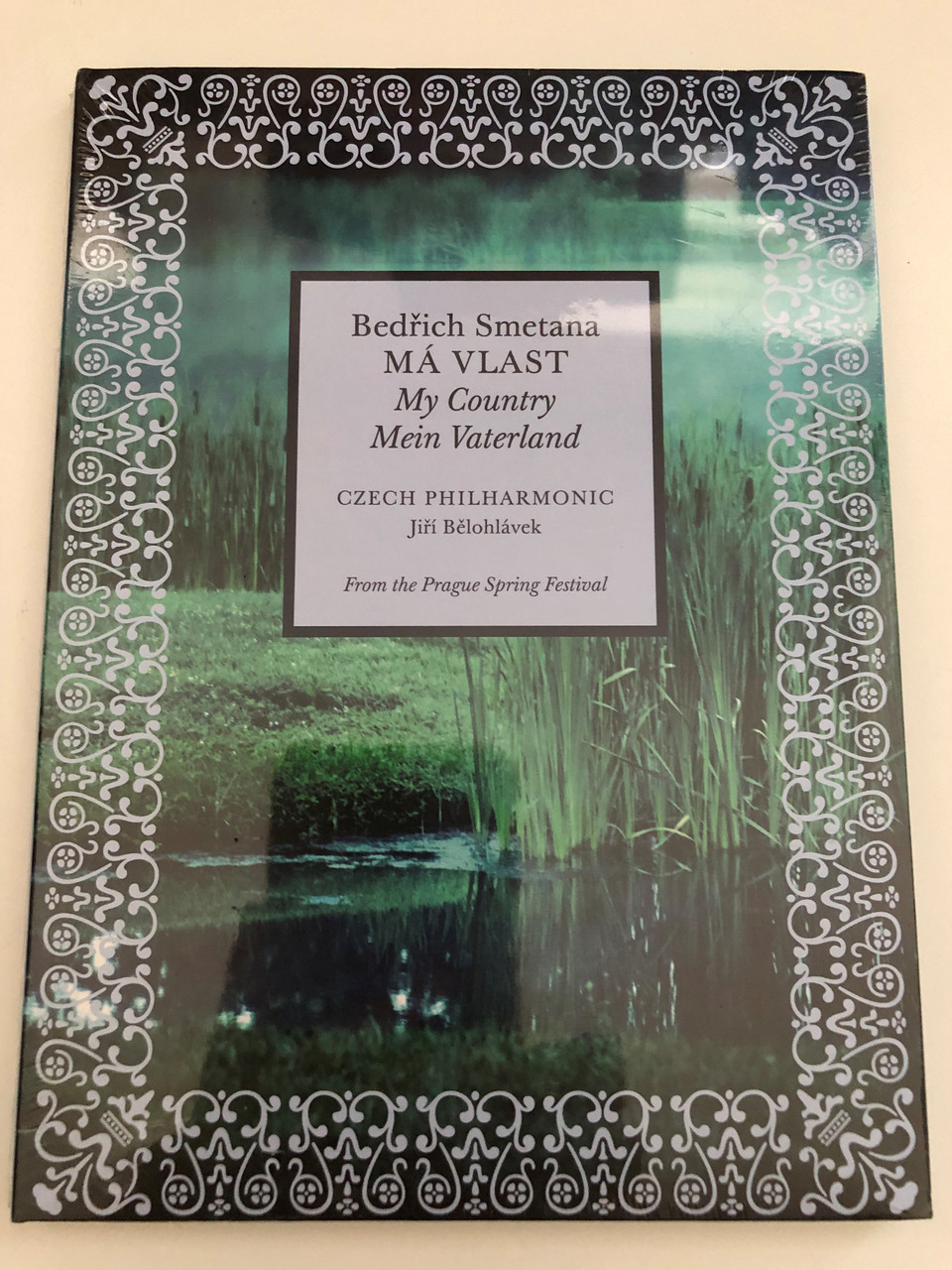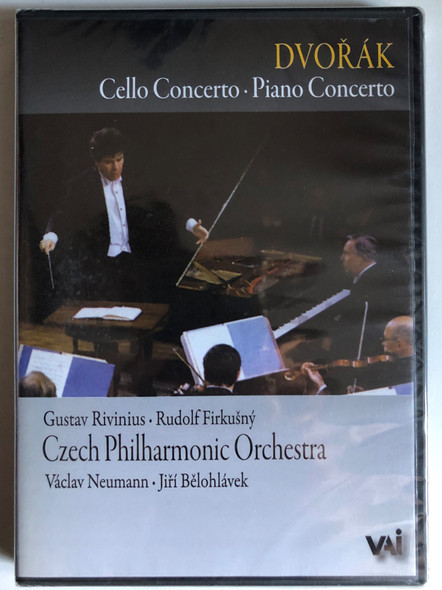Description
Bedrich Smetana: Má Vlast - My Fatherland / Czech Philarmonic / Conductor: Jiri Belohlavek / From the Pargue Spring Festival / Smetana Hall of the Municipal House in Prague / DVD
Format: NTSC
Running time: 86 Minutes
UPC: 880242727589
- Aspect Ratio : 1.78:1
- MPAA rating : Unrated (Not Rated)
- Product Dimensions : 7.36 x 5.51 x 0.31 inches; 3.53 Ounces
- Director : Tomas Simerda
- Media Format : Multiple Formats, Classical, Widescreen, NTSC
- Run time : 1 hour and 26 minutes
- Release date : September 11, 2015
- Actors : Czech Philharmonic, Jiri Belohlavek
- Subtitles: : English
- Studio : EuroArts
- Country of Origin : France
- Number of discs : 1
The six orchestral poems comprising Bedrich Smetanas My Country the most famous being The Moldau with its instantly recognizable melody and evocation of this great river tell of Bohemias lands and legends. This performance of My Country, recorded live at the Prague Spring Festival 2014, features the Czech Philharmonic under the baton of Jirí Belohlávek. esprit, lightness and most beautifully melodious an exacting performance in soft and lightweight sound, every poem following on, becoming more immediate and intense. (MF Dnes Czech)
Bedrich Smetana (1824-1884) has been called the father of Czech music; indeed, he used his people's national folk idiom in protest against foreign political and cultural domination. Má Vlast, a cycle of six symphonic poems held together by some recurring thematic material, was begun in 1874 and premiered in 1882. Most of the music celebrates the Bohemian countryside with beguiling melodies, luscious harmonies, and masterly, colorful orchestration. "Vysehrad," a portrait of the majestic castle overlooking Prague, opens with broad harp arpeggios; in "The Moldau," the cycle's most familiar movement, the music follows the great river's course from its two sources through a peasant wedding, a hunt, the rapids, nymphs dancing in the moonlight, and past the castle as the harp arpeggios recur. "Sárka" was a warrior maiden betrayed in love, who wreaks vengeance on men by slaughtering a company of knights. "From Bohemia's Woods and Meadows" is a pastoral idyll that lovingly depicts sunlit fields and shady forests. The last two movements, based on a Hussite chorale, commemorate the Hussites' courageous, hopeless struggle for their faith. "Tábor" was their settlement, "Blaník" a mountain inside which the defeated slain warriors wait, asleep, to resume their fight. Despite his patriotic fervor, Smetana seems less at home describing bloody battles than his beloved countryside, but the real miracle of this life-affirming work is that in the course of its creation, his health failed increasingly, and he suddenly became completely deaf; he attended its triumphant first performance, but could not hear it. This performance is warm, affectionate, and idiomatic; the wind solos are particularly lovely.


























